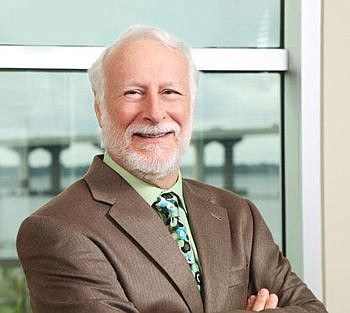
There’s an area of law in which the axiom “possession is nine-tenths of the law” is taken a step further.
When it comes to owning a trademark, possession is ten-tenths of the law as long as the trademark is being used, even if it isn’t registered with the U.S. Patent and Trademark Office, said Howard Caplan, senior counsel at Lewis Longman & Walker.
“It’s certainly different than other recognized areas of intellectual property law,” he said.
A trademark is a word, phrase, symbol and/or design that identifies and distinguishes the source of the goods of one party from others.
Unlike patents and copyrights, trademarks do not expire after a set term. Trademark rights come from actual use.
Therefore, a trademark can last forever — so long as it continues to be used in commerce to indicate the source of goods and services.
The use of trademarks goes back to the Roman Empire, when blacksmiths who made swords applied distinctive marks to their blades.
German brewer Lowenbrau claims use of its lion mark since 1383.
During the reign of King Henry III, the British Parliament in 1266 enacted the first trademark law, which required bakers to place a distinctive mark on the bread they sold.
In the U.S., Congress established a federal trademark program in 1870, but several years later, the Supreme Court struck down the statute. Congress passed a new trademark act in 1881 and revised it in 1905.
It remained in force until 1946, when the Lanham Act was adopted. It has since served as the federal law on trademarks.
Caplan said every business owns a trademark in the form of its name. If the business is the first user of its name, it has the strongest rights and can use the mark without registering it with the federal government.
That’s referred to as a “common law trademark” and the first to use a mark has more rights than the first to legally register the same mark, he said.
Registering a trademark can create some interesting legal issues, Caplan said.
He referenced when Subway tried to register “foot-long” as one of its trademarks.
The application was denied because the sandwich wasn’t 12 inches in length and also because the term is commonly used in the industry.
“A generic is never eligible,” Caplan said.
Another factor in trademark law is it’s self-policing. If someone wants to use a trademark, it is their responsibility to determine if another entity already is using it, usually by researching databases maintained by the federal and state governments.
“The public is charged with having knowledge of what’s in there and the owner (of a trademark) is obligated to monitor the market,” Caplan said.
Like many aspects of modern life, the internet had a tremendous impact on trademarks with its easy access to anyone with a computer and its global presence.
Before the world went online, there were myriad trademarks, “but the internet caused a proliferation,” said Caplan.
On the recourse side of the equation, the first step for a trademark owner who determines someone else is using the mark is a cease-and-desist letter, which can head off litigation.
If that doesn’t work and the matter goes to court, that’s where there’s a difference between the two categories.
Caplan said the owner of a common law mark can collect damages if damages can be proven — lost profits, for example.
The owner of a registered trademark may also seek statutory relief, because “infringement is damage,” Caplan said.
He said he enjoys practicing trademark and copyright law and often lectures on the subject at the University of North Florida Coggin School of Business and Florida Coastal School of Law.
“It’s a fascinating, fluid area of the law,” Caplan said.
@DRMaxDowntown
(904) 356-2466